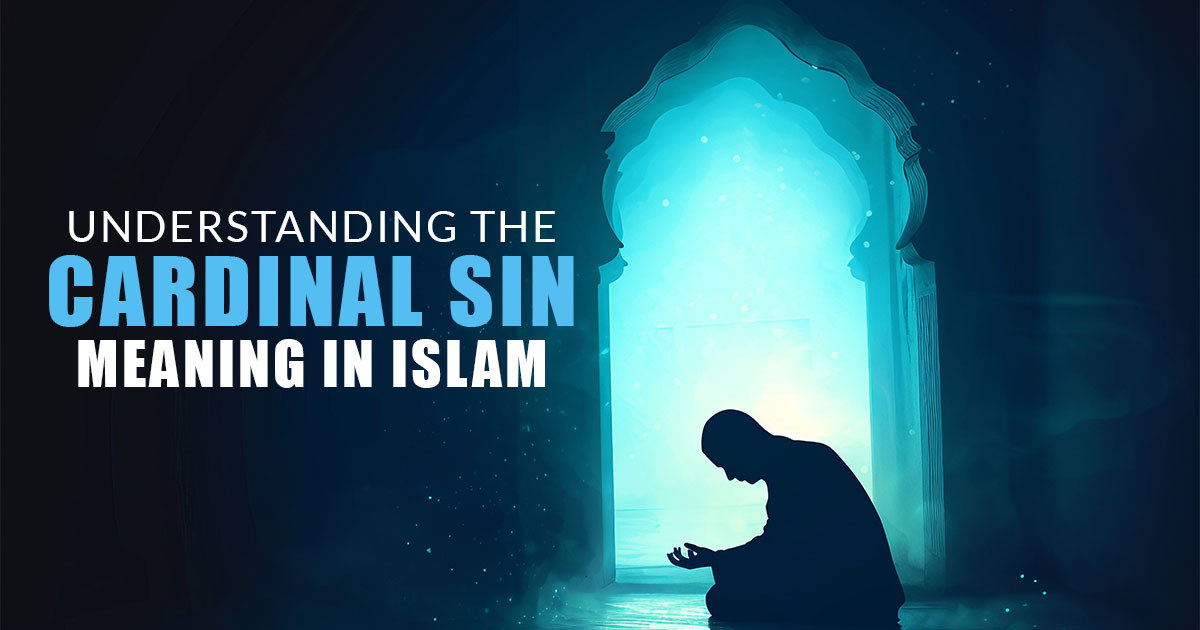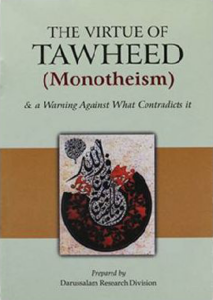In Islam, the concept of sin holds significant weight in shaping an individual’s spiritual journey. While all sins are considered detrimental to one’s spiritual well-being, certain sins are regarded as cardinal sins, holding particular gravity in Islamic teachings.
Understanding the cardinal sin meaning in Islam is crucial for believers to navigate their spiritual path and avoid potential pitfalls. In this comprehensive blog by Darussalam, we delve into the essence of cardinal sins, their implications, and strategies to steer clear of them.
Understanding the Concept of Cardinal Sins in Islam:
In Islam, the term “cardinal sins” refers to a category of grave transgressions that carry significant spiritual consequences. These sins are emphasized in Islamic teachings due to their severity and potential harm to an individual’s relationship with Allah and their community.
1. Refers to grave transgressions emphasized in Islamic teachings.
2. Signifies sins with significant spiritual consequences.
3. Essential for believers to understand for navigate moral responsibilities effectively.
Exploring Varieties of Cardinal Sins:
Within Islamic teachings, cardinal sins encompass a range of transgressions that are deemed particularly serious. These sins include acts such as associating partners with Allah (Shirk), committing murder, engaging in adultery, participating in usury (Riba), and consuming intoxicants (Khamr). Each of these sins carries its implications and consequences, highlighting the importance of understanding and avoiding them in the pursuit of spiritual purity and righteousness.
Learn More: What is Shirk in Islam?
Implications of Committing Cardinal Sins:
Committing cardinal sins in Islam has far-reaching implications, affecting both the individual and the broader community. The social consequences of sins can erode the fabric of society, causing harm to individuals, families, and communities.
1. Spiritual consequences such as weakening faith and rupturing relationship with Allah.
2. Social ramifications leading to harm in families and communities.
3. Potential loss of salvation in the Hereafter.
Strategies to Avoid Cardinal Sins:
To safeguard against falling into the trap of cardinal sins, Muslims employ various strategies aimed at strengthening their faith and upholding Islamic principles.
1. Strengthening faith through prayer and remembrance.
2. Surrounding oneself with righteous companions.
3. Cultivating self-discipline and restraint in the face of temptation.
By adopting these strategies, believers can fortify their spiritual resolve and navigate life’s challenges with integrity and piety.
Seeking Forgiveness and Repentance:
In Islam, the path to redemption after committing a cardinal sin lies in seeking forgiveness and repentance from Allah. This process involves acknowledging the wrongdoing with sincere remorse, and ceasing the sinful behavior.
1. Reflect on the wrongdoing with genuine remorse, acknowledging its gravity.
2. Cease the sinful behavior promptly, showing a sincere intention to reform.
3. Take active steps to make restitution for any harm caused and commit to avoiding similar transgressions in the future.
Misunderstandings Surrounding Cardinal Sins:
Misunderstandings can often arise surrounding the concept of cardinal sins in Islam. Some individuals may mistakenly believe that certain actions are not as serious as they are deemed in Islamic teachings, leading to a lack of awareness about the gravity of these transgressions.
1. Erroneous beliefs regarding the gravity of major transgressions in Islamic teachings.
2. Confusion surrounding the criteria for seeking forgiveness for major sins.
3. Lack of understanding about the overarching mercy and forgiveness of Allah in Islam.
Read More: The Biggest Sin in Islam
Conclusion:
Understanding the cardinal sin meaning in Islam is imperative for believers striving to lead a righteous life. By recognizing the gravity of these sins, adherents can take proactive measures to avoid them and safeguard their spiritual well-being. Through steadfast faith, self-discipline, and seeking forgiveness, individuals can navigate their journey with confidence, knowing that Allah is ever-merciful and forgiving to those who sincerely repent. May this guide serve as a beacon of knowledge and guidance for all those seeking to tread the path of righteousness by Islamic teachings.
Learn More: Minor and Major Signs Before the Day of Judgement
FAQs About Understanding the Cardinal Sin Meaning in Islam:
What is the punishment for committing a cardinal sin in Islam?
Punishments for cardinal sins vary based on severity, with some outlined in Islamic law. However, repentance can mitigate consequences.
Can a person be forgiven for committing a cardinal sin?
Yes, sincere repentance can lead to forgiveness, regardless of the gravity of the sin, reflecting Allah’s mercy.
How can one identify if they have committed a cardinal sin?
Knowledge of Islamic teachings helps identify cardinal sins, typically mentioned in the Quran or Hadith.
Are there any exceptions or mitigating circumstances for committing a cardinal sin?
Circumstances like coercion or ignorance may lessen accountability, but sincere repentance remains key.
What role does intention play in the commission of a cardinal sin?
Intentions matter; sins committed inadvertently or with genuine ignorance may be viewed differently, but repentance is essential.













